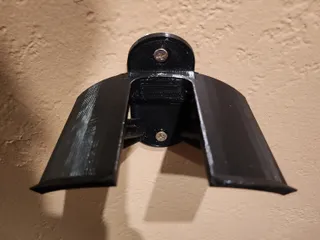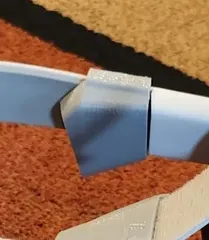UPDATED Pico 4 Increased FOV facial interface gasket v4, now with magnets
Description
PDFThe Pico 4 is better in almost anyway than the Quest, it is lighter, better balanced, and has a higher FOV out of the box than I have been able to get with any facial interface for the Quest. The only thing the Quest does better is software, which I am hoping Pico will improve with time.
Since the Pico 4 already had higher FOV with the stock interface than the Quest with my eyeballs touching the lenses, I figured I could make the Pico better. I modified the great 3d scan by Chri (https://www.thingiverse.com/thing:5619731), stuck some velcro on it and used an HTC Vive face pad. I used the 18mm as they are pretty squishy and got a 12 degree increase in FOV, and if I used the 12 or 6mm pad that would even be higher! I included a model with the nose deleted as it may allow you to get your face a little closer, at this distance, the nose guard is pretty much pointless.
I do a lot of sim racing so horizontal FOV is very important to me. Before the Quest 2, I had a modded HTC Vive, and it was great, unfortunately I "upgraded" to the Quest 2 and it had AWFUL FOV. I found myself inadvertently causing contact with other drivers so much so, I quit doing some racing series' and wasn't nearly as competitive in others because the worry of causing an accident. With this interface, I can now finally race safe and competitive again.
Face pad
https://amzn.to/3GfGpHV (what I used)
https://amzn.to/3Gfjwo4 (may fit better)
Velcro
https://amzn.to/3O7aStz
Below you can see my comparison between each of the headsets and interfaces. (IPD- 66, Quest 2 on middle setting)
Horizontal FOV - Device
87 - Quest 2 (Stock)
92 - Quest 2 (High FOV interface https://amzn.to/3UCZPuw )
94 - Pico 4 (Stock)
107- Pico 4 - (This interface w/18mm pad)
V3- is oriented to need the smallest amount of support
V4- I added a model that has places for some 5x3 magnets, I layed it flat, print either flat or at a 45 degree angle.
Tags
Model origin
The author marked this model as their own original creation.




